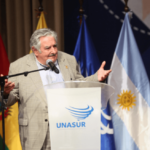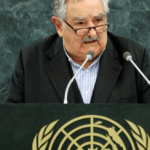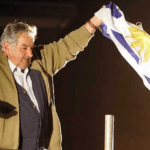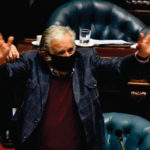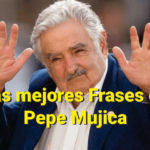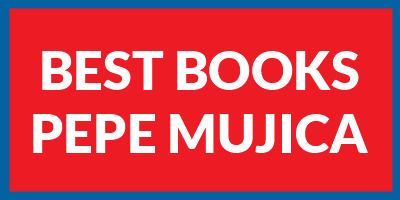Do you really know who José Pepe Mujica is and his biography?
José Alberto Mujica Cordano, known as Pepe Mujica is a former Uruguayan politician and guerrilla fighter who held the presidency between 2010 – 2015. He became the fortieth president of the Eastern Republic of Uruguay.
He was appointed Minister of Livestock, Agriculture and Fisheries in 2005, a position he held until 2008. In this same year he married his current spouse Lucia Topolansky, also a Uruguayan politician with extensive experience. Before being a minister, he held the positions of Deputy and Senator for the Tupamaros National Liberation Movement.

Tabla de contenidos
- 1 Birth and Family
- 2 Education
- 3 Career in politics
- 4 Beginnings
- 5 Pepe Mujica’s participation in the “guerrilla”
- 6 Road to the presidency
- 7 Arrival to the government
- 8 National Policy | What did Pepe Mujica do in his government?
- 9 International Politics of Pepe Mujica
- 10 After the presidency of Jose Pepe Mujica
- 11 He resigns from Politics in 2020
- 12 Thoughts of Pepe Mujica
- 13 The best quotes by Pepe Mujica
- 14 Pepe Mujica: Netflix and its appearance in the cinema
- 15 Pepe Mujica and his appearance in music
- 16 Pepe Mujica Awards
Birth and Family
Pepe Mujica was born on May 20, 1935 into a farming family, in the town of Paso de la Arena, Montevideo. His parents were Demetrio Mujica Terra and Lucy Cordano Giorello. He was the first-born of the brothers.
Thanks to his paternal family he has Basque descent, his predecessors immigrated to Uruguay in 1840, from Múgica, a municipality in the province of Vizcaya. Unlike his mother, who has Italian ancestry. The maternal family were Italian immigrants from Genoa, Liguria, from the Fontanabuona valley. Like the maternal grandparents, the Giorellos.
The maternal grandparents were vine farmers. These immigrant farmers made the acquisition of five hectares in Colonia Estrella, Carmelo to continue exercising their trade, cultivating their vineyards. Lucy Cordano Giorello, mother of Pepe Mujica, was born in this same place.
By then, given the existing political conflicts in Uruguay, and the close relationship that his grandfather had with the world of politics, led to the fact that, in their lands, the follower of the Partido Nacional, friend and follower of Luis Alberto de Herrera allowed the soldiers to be trained to fight the insurrections of the leader Aparicio Saravia.
Pepe’s father was a small foreman in charge of a small farm, which years close to his death was found bankrupt. When Pepe Mujica was only five years old, in 1940.
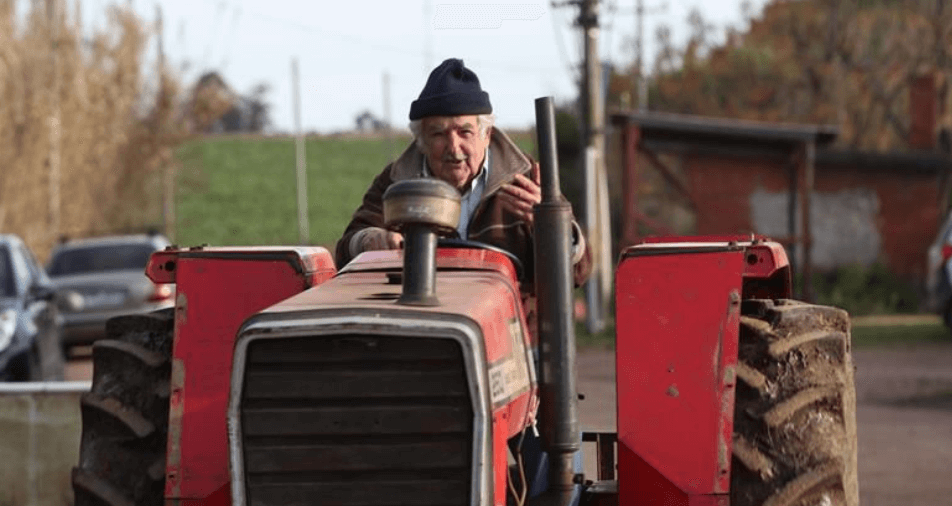
When he was in his third year of school, the news of his father’s death was a blow to the family. With her younger sister, María Eudosia suffering from schizophrenia, agriculture, cultivation and trade in flowers became the main pillar of family economic support.
Education
Due to the family difficulties that Jose Mujica Cordano had in his time, the preparation of Jose Mujica Cordano was not extensive or extensive. He completed his first years of studies without problems, in a public institution in the place of his birth, in Paso de la Arena.
Later, he continued his high school studies, which he was unable to complete, for which reason he left the Alfredo Vásquez Acevedo Institute.
Pepe Mujica, a young revolutionary and dreamer, from a very young age was always influenced by political airs by his maternal uncle, Ángel Cordano. Which instilled in him his first knowledge in what would be the beginning of his political training.
It should also be noted in his preparation, the incredible sports career that Pepe Mujica had. He practices cycling from the age of 13, a discipline in which he remained active until he was 17 years old. He had a great performance, standing out in all categories, managing to represent many cycling clubs.
Career in politics
Without a doubt, Pepe Mujica’s political career is a true gold mine. From his origins as a guerrilla in 1964, until he became Uruguayan president in 2010.
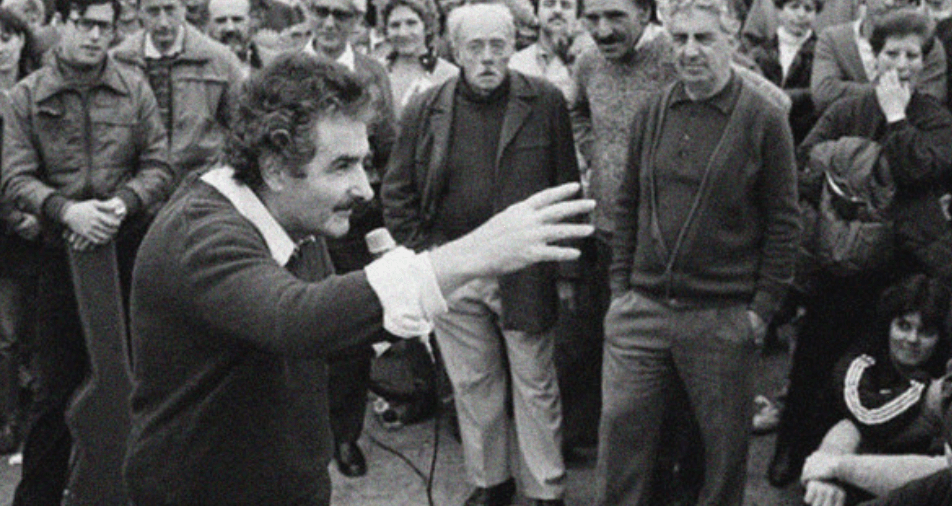
Prior to his position as President of Uruguay, Pepe Mujica held several important political positions in his country. As were his election as a deputy for Montevideo and later his election as a senator in 1999. All this thanks to the growth of his name in the national political arena.
Pepe Mujica, boasts among his main achievements, winning the hearts of people mainly because of his political idiosyncrasy and his great personality and charisma. These took him to the peak of his career. A man who is and will be positively remembered for his principles, who acted based on what he preached, with example and righteousness.
His presidential legacy in political terms can be considered as favorable in the same way. He became the first politician to be president by democratic election after having fought as a guerrilla. This from the Tupamaros National Liberation Movement against the same image of the state against the military dictatorship.
Beginnings
His mother’s brother, Ángel Cordano, a recognized nationalist, was the first person to influence Pepe Mujica politically. His mother, Lucy Cordano Giorello, was a member of the Partido Nacional like her uncle. Through her he meets Enrique Erro, a deputy for the National Party, and begins his membership in that party.
Pepe Mujica, during his career in the National Party, reaches the position of general secretary of the youth.
The deputy Enrique Erro, thanks to the triumph of Herrerismo for the first time in Uruguay in the 1958 elections, occupies the position of Minister of Labor, in which he is accompanied by Pepe Mujica in administrative and legislative tasks without formally becoming a public official.
Erro, together with Pepe Mujica, separated from the National Party and together founded the political party Unión Popular. This in union with the Partido Socialista del Uruguay and the Nuevas Bases party.
After its foundation, the party is encouraged to carry out its presidential candidacy, for which, they nominate Emilio Frugoni, in said elections, taking a resounding failure with only 2.3% of votes.
Pepe Mujica’s participation in the “guerrilla”
Pepe Mujica began his revolutionary struggle in 1964, his dissatisfaction with what was happening politically in his country and the arbitrary public administration led him to join the Tupamaros National Liberation Movement, becoming a Tupamaro, in which he received training and qualification. necessary to carry out insurgent guerrilla operations.
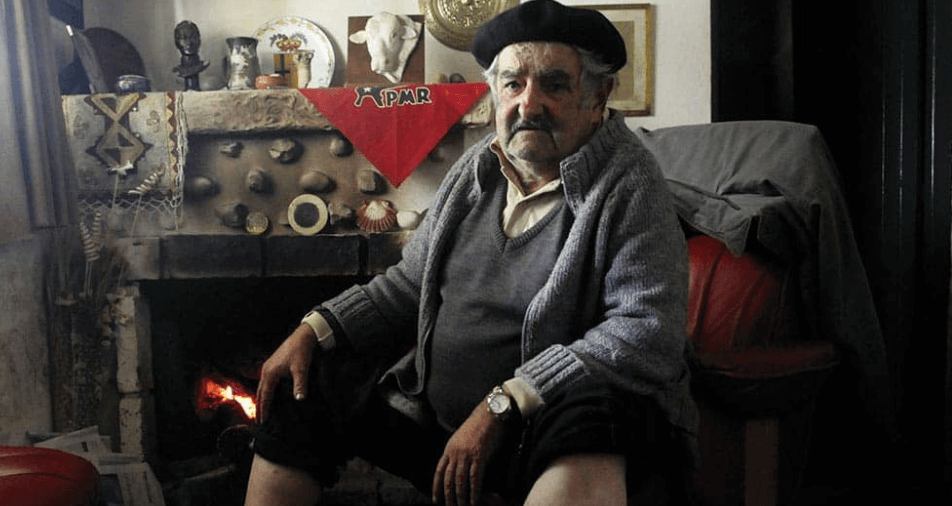
For those years, he simultaneously continued his work as a farmer, working on his farm which served him to hide his guerrilla activities, however, this activity was not enough and when he was discovered and had a judicial arrest warrant, he had to go underground.
Between the years 1967 and 1972, in the presidential period of the dictator Jorge Pacheco Areco, Uruguay lived a time of much violence, the executive power abused its authority in the constitutional reiterative use of prompt security measures in the face of continuous attacks by internal guerrillas from the country.
These measures give temporary emergency powers to the executive branch to temporarily suspend constitutional guarantees to solve serious cases of attacks or unforeseen events, both from abroad and internally.
The government at that time, not only had to face the constant radical attacks by the armed guerrillas, but also had to face the opposition that was increasing on the part of social groups such as unions and unions dissatisfied with the economic measures taken by the executive.
In his time as a guerrilla, Pepe Mujica almost lost his life, received a total of six gunshot wounds, was an important target by the dictatorship as he was an important leader of the civil armed movement and as one of the leaders of the Movement of Tupamaros National Liberation would be executed if his movement carried out a terrorist act against the state.
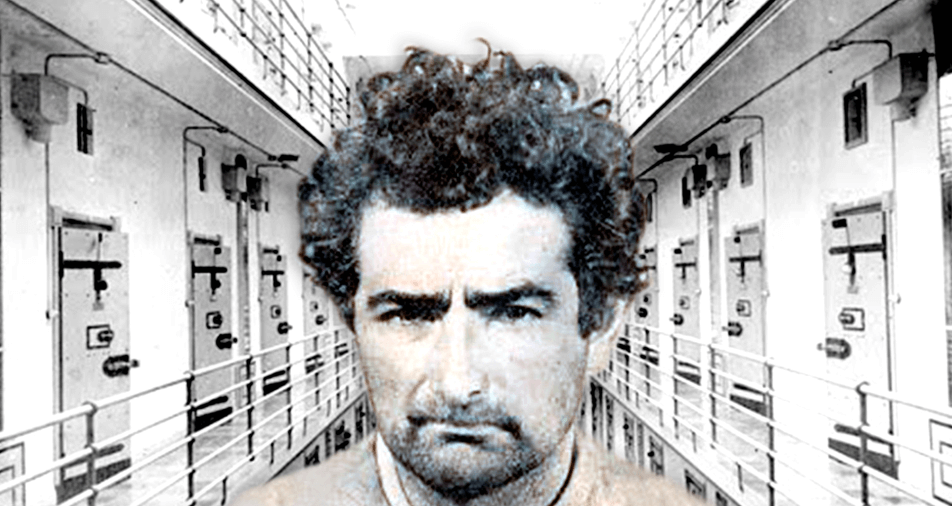
His life as a “guerrillero” was not easy. His character, determination, principles and will were put to the test, he was in jail four times, of the 4 times he was deprived of liberty, he managed to escape from one of them.
He spent in prison, in total more than 14 years, his last period as a detainee was between 1972 and 1985 from which he managed to get out thanks to a national amnesty treaty for political crimes when democracy returned to the country.
Road to the presidency
His path to the presidency was full of many obstacles. In 2008, in an extraordinary congress session, he was named the official candidate of the Frente Amplio party for the internal elections of 2009, along with other candidates from similar parties.
Two of the five candidates for the presidential candidacy give up, leaving only Pepe Mujica, Danilo Astori and Marcos Carámbula in the race, whom he easily defeats on June 28, 2009, being elected as the sole representative of the Frente Amplio for the presidential elections.
His presidential candidacy was presented with great force, so much so that he received the support of international parties such as Kirchnerism, being invited to a political rally to be held in Mar de Plata which he could not attend due to the strong internal criticism received.
Prior to the June 28 elections, he had to renounce his responsibilities in the Popular Participation Movement, through a statement, in order to focus all his energy and forces on the pre-candidacy as representative of the Frente Amplio.
Once this process is completed and in the company of Danilo Astori as vice president candidate, Pepe Mujica presents his official presidential candidacy for the presidential elections to be held in October of that same year.
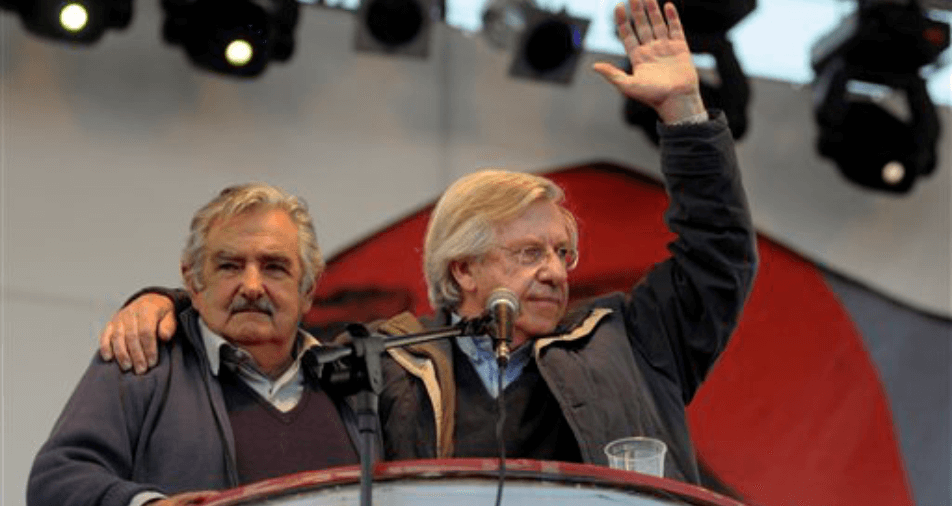
He had a great campaign team, thanks to which he managed to rise with victory, among which his chief of public security Mr. Milton Romani, economist leader Héctor Tajam, and the person in charge of foreign affairs Juan Domínguez stand out among the most prominent.
Arrival to the government
The presidential elections were held on October 25, 2009, in which he faced four more candidates representing his political parties, Luis Alberto Lacalle for the Partido Nacional, Pedro Bordaberry for the Partido Colorado, Pablo Mieres for the Partido independiente and Raúl Rodríguez da Silva for the Asemblea Popular
In these, Mujica stands victorious against his 4 rivals with a great difference, obtaining 47.96% of the total valid votes, taking an overwhelming difference from the second candidate who barely obtained 29.07% of votes. Both secure a place for the second round.
The second round is held on November 22 of that same year, in which Pepe Mujica consolidates his presidential victory with a slightly closer result of 52.39% against the 43.51% of votes obtained by his rival Luis Alberto Lacalle. From his first day as president-elect of Uruguay, in his first speech he appealed to the conscience of the people.
José Alberto Mujica Cordano is sworn in in the Legislative Palace on March 1, 2010 as President of Uruguay. A curious fact about the swearing-in is that it was received by Lucia Topolansky, wife of Pepe Mujica, for being the country’s first senator.
It was a ceremony full of national and international political representatives. Among the most important were Cristina Fernández, Hillary Clinton, Rafael Correa and Hugo Chávez.
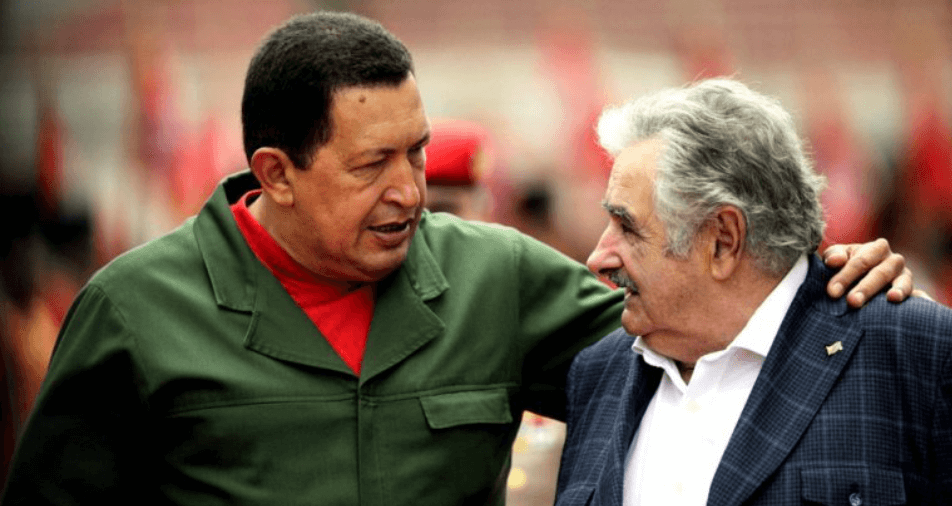
Almost three hours after the swearing-in ceremony, he officially takes his position by holding his first public presidential act, held in the most important square in the city, Plaza Independencia, located in Montevideo. In it, the presidential sash was imposed on him by the hands of previous president Tabaré Vázquez.
He never moved to the presidential house of Suarez and Reyes, Pepe Mujica remained faithful to his ideals and principles, so he decided to continue living in his farmhouse located in Rincón del Cerro, where he currently lives. This involved extra work for the presidential guard who had to improve security and communication at said residence.
National Policy | What did Pepe Mujica do in his government?
President Pepe Mujica
Pepe Mujica’s management at the national level in general can be classified with a positive balance, like everything in life, nothing is perfect, he had the courage to accept his mistakes as national leader in his presidential term. Many opinions can be issued from his tenure as president. But it can never be said that Pepe Mujica was corrupt.
He always criticize politicians who made a political career just to profit without really caring about ensuring the quality of life of their people.
Economically speaking, it was sought to improve and strengthen the economic policies of the previous presidential term and give them continuity. The repercussions were immediate, achieving wonderful results, the unemployment rate went from 13% to just 7%, the country’s minimum wage was also affected, which increased by 250% in total.
He promoted and promoted the development of government policies on national production and foreign investment. The International Trade Union Confederation evaluated the development of fundamental labor rights, which gave the mention to the most developed country in Latin America in this regard.
In social matters, one of his most outstanding tasks was the socio-housing integration project, which became one of the main banners of his government. This, said by Mujica himself, was more than a housing plan, it was an ethical plan in search of ensuring one of the main rights of every human being, to have a decent home.
In terms of drugs, he revolutionized the entire country, with the legalization and regulation of marijuana. This action that was praised by great world powers such as the United States and England.
In family matters, he legalize homosexual marriage promoting inclusion and rejecting ideological discrimination in this regard.
International Politics of Pepe Mujica
The political ideology of Pepe Mujica, transcended borders, becoming known in the international arena. He condemned and opposed the various military operations carried out against the Libyan people in 2011.
In his negotiations and diplomatic agenda, he visited important countries in the world, such as Russia, the United States, Spain, Argentina, etc.
Also noteworthy is his inexhaustible fight for the protection and fulfillment of human rights, he was a world ambassador on the matter, his famous and unforgettable speech during his visit to the United Nations General Assembly attests to this.
Uruguay – Argentina Conflict
He managed to solve the international conflict, existing since 2005, between Argentina and Uruguay. The same was due to the different pulp mills located near Fray Bentos (Uruguay) and Gualeguaychú (Argentina). Allowing access to the plants to Argentine trained personnel.
In search of expediting the entry into Argentina of products exported from Uruguay, making the entry permits to the country not take more than 2 months and detecting where the obstacles of the customs system were, he believe together with her Argentine counterpart, President Cristina Fernández the binational commercial monitoring commission on February 25, 2011.
This delegation was made up of technical and administrative personnel from both countries.
On that same date, Mujica reached the agreement for the creation of an industrial plant in charge of supplying natural gas to both Uruguay and Argentina, for at least 15 years after its completion, which was planned for 2013, with a total value of more than 17 million dollars.
It would be a plant owned by both countries, on the part of Uruguay the firm would be represented by the company Gas de Sayago S.A. and on the part of Argentina by the company Enarsa. This would be located off the Uruguayan coast and would connect to the networks of Argentina and Uruguay.
After the presidency of Jose Pepe Mujica
Once his presidential cycle is over, José Alberto Mujica Cordano, in the presidential ceremony held on March 1, 2015, hands over the presidential sash to the reelected Tabaré Vázquez, also a representative of the Frente Amplio.
This remarkable support that the Frente Amplio party had, achieving victory during three consecutive presidential cycles, was the result of the degree of satisfaction and popular contentment for the efforts of the executive power seen reflected in the operation of the country.
Pepe Mujica does not disappear from the political environment, he had offers in various administrative spheres of the state, he currently holds the position of senator of the republic, being elected after being president for the period 2015 to 2020, and achieving re-election again for the period 2020 to 2025.
In 2019, Mujica had the opportunity to assume the position of Minister of Livestock, by candidate Daniel Martínez Villamil. In 2014, he also made clear his refusal to run as mayor of Montevideo despite the support of the Frente Amplio.
His last formal act as president of Uruguay, the delivery of the national pavilion, took place the most important official public site of the city of Montevideo, the Plaza Independencia. In this act, Mujica delivered a very emotional speech in which he expressed his gratitude to all the Uruguayan people for the support received during his term in office.
In the act carried out, the Uruguayan flag that flew at the presidential headquarters during his mandate was presented to him on the occasion of commemoration.
He resigns from Politics in 2020
Pepe’s resignation as senator on October 20, 2020 is the last step in his voluntary departure from politics that has been the protagonist for more than half a century. The former president’s decision did not surprise any Uruguayan since he had hinted at it months before. The Senate voted unanimously to respect his wishes and pay tribute to the person who decided to resign due to personal exhaustion and the serious causes of the pandemic.
The age of 85 and his status as a carrier of autoimmune diseases, therefore, has accelerated his time to leave the legislature
Mujica’s departure from the Senate coincided with the departure of another former head of state and legislator. Julio María Sanguinetti who started the democratic transition in Uruguay in 1985.
Thoughts of Pepe Mujica
José Alberto Mujica Cordano, was a man with very marked moral and ethical ideals from his youth. Pepe Mujica, a young dreamer and philosopher, always demonstrated his beliefs and thoughts with his example. His austere lifestyle, free from worldly needs or luxuries, was the greatest proof of Mujica’s happiness.
He kept his small farm on the outskirts of Montevideo as his residence. When he was president of Uruguay he never occupied the presidential residence, and as a means of transportation he never changed his ’87 Volkswagen beetle model. He demonstrated with facts his leftist political beliefs by donating more than 80% to social projects and charitable works.
Thanks to his unique character, unmatched personality, an ineffable mentality and a lifestyle that transcends modern standards, Pepe Mujica garnered international interest, through the numerous interviews and reports that he was the center of.
The great international media defined him by his broad features, as a respectful, friendly or admirable person. He became an example to follow despite his flaws.
He never looked at the codes that society usually imposes in media such as politics, fashion, or the public arena. Always express your thoughts honestly, I never seek to win people over with lies or deception.
For his personal satisfaction, the last thing on his list of needs was material extravagances. For him they were an anchor of true happiness, becoming the bars of freedom.
In all the activities that I carry out, both as president and outside of office, they have always reflected a great human quality, full of incorruptible principles. Which gave him the nickname by which he would be known in a positive and inspiring way, as “the most humble president in the world.”
The best quotes by Pepe Mujica
When we talk about Pepe Mujica, phrases, thoughts and speeches full of faith and love for humanity, directed to the social conscience, will be left over. We could literally write a book only with its countless messages, YouTube speeches or phrases about education, which made the consciences of society rumble. Among his most iconic phrases we have:
- “Living better is not just having more, it is being happy too.”
- “The poor are not those who have little, but those who want to have much.”
- “The only healthy addiction is love.”
- “I learned that if you can’t be happy with a few things, you won’t be happy with many.”
- “Power reveals who people really are.”
In one of his memorable interviews, Mujica was asked for his opinion about politicians when their careers were starting to take off, and he replied:
“as soon as politicians begin to climb the ladder, they suddenly become eminences, their humility evaporates, I don’t know why … “
He reflected on how unfortunate it was to see how politicians seemed to have the need for palaces, red carpets and an entourage of people saying yes to everything. For Pepe Mujica, the work of politicians was precisely that, for his people.
SEE THE 27 BEST PHRASES OF PEPE MUJICA
He is undoubtedly a free thinker, in response to the name placed by the international press as “the poorest president in the world” he replied:
“I do not consider myself poor, I am a sober person, light on luggage. I prefer to live with the just and be free, than for things to steal my freedom”.
His personal philosophy was based entirely on selfless service. He firmly believed that “politicians should live as the majority live, and not as the minority live” our work, and I quote:
“It is to fight for the happiness of all, whatever they seek or love money a lot, they must be flushed out of this profession”
Pepe Mujica: Netflix and its appearance in the cinema
The great career of José Alberto Mujica Cordano, not only attracted the attention of the world of world journalism or politics. His inspiring story caught the attention of the film world.
El Pepe, a supreme life
In 2013, producer Emir Kusturica got caught up with the politician’s story and decided to make a documentary that told the story of Pepe Mujica. I consider him “as the last hero of politics.” This film was released in 2018, at the Venice Film Festival, under the name of El Pepe, a supreme life. (“Pepe Mujica: una vita suprema”)
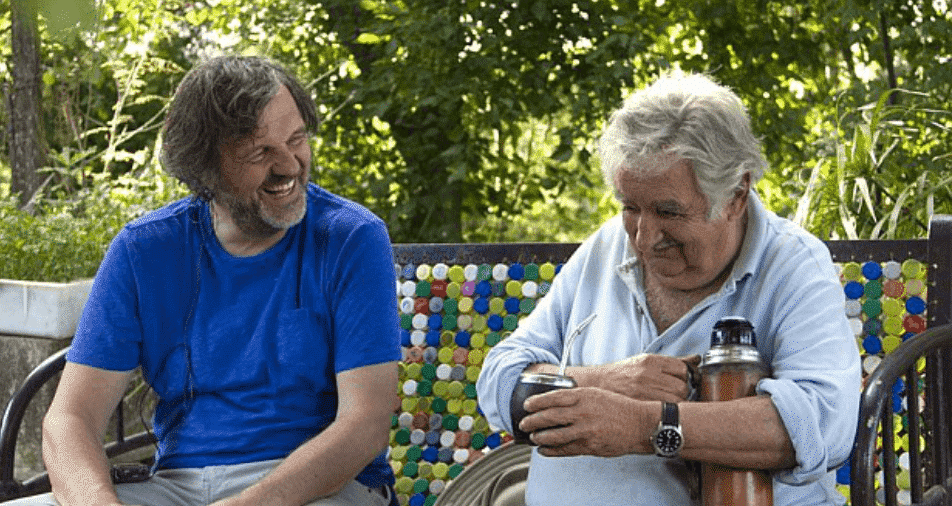
The night of 12 years
That same year, another renowned Uruguayan producer, director and screenwriter Álvaro Brechner made a film. It is focused on recounting the dark years of prison and captivity that Pepe Mujica had. The 12 Years Night, premiered at the prestigious Venice and San Sebastian International Film Festival.
This film production was the winner of many awards. Among them, the following stand out: Goya Awards in 2018, Cairo International Film Festival in 2018, Amiens Film Festival in 2018, Uruguayan Film Critics Association 2018. In total, it won 15 awards, out of more than 25 nominations.
Pepe Mujica and his appearance in music
The impact of the life and works of José Alberto Mujica Cordano in the art world is not only limited to the cinematographic field. It also had repercussions in the musical field.
The Spanish singer-songwriter and composer María de los Ángeles Rozalén Ortuño, in one of the lyrics of her songs, in the song “Girasoles” she included an inspiring speech by Pepe Mujica. Which released in the most popular album of the singer, entitled “When the river sounds”
Another great musician, he also found his inspiration in the life and works of Pepe Mujica. Spanish actor and writer José Riaza, who takes excerpts from many of the Uruguayan politician’s speeches as the script for his album “Despertares”. Rock music genre album, through which the artist spread a humanistic message.
Pepe Mujica Awards
There is no fair way to rate or reward the diplomatic and political work I do around the world. This made him worthy of a series of national and international recognitions.
The wide and extensive political career that Pepe Mujica had, his philosophical legacy, and the message that he sowed in the new generations earned him the merits. Necessary to fill a palm grove of extensive political recognitions, among which we have:
- National Order of Merit “Mariscal Francisco Solano López” (2010).
- Order The Sun of Peru (2011).
- Doctor Honoris Causa from the University of Lanús (2011).
- Doctor Honoris Causa from the National University of La Plata (2012).
- Cortes de Cádiz Freedom Award.
- Mexican Order of the Aztec Eagle (2014),
- In the degree of Grand Collar: National Order of Merit (2014),
- National Order of the Grand Collar of Ecuador (2014),
- Lion Heart Award (2014) from the Federation of University Students (FEU) of the University of Guadalajara (Mexico).
- National University of Rosario: Doctor Honoris Causa (2016).
- Autonomous University of Baja California: Doctor Honoris Causa (2016).
- Autonomous University of Santo Domingo: Doctor Honoris Causa (2016).
- Gabriel René Moreno Autonomous University: Doctor Honoris Causa (2016).
- Doctor Honoris Causa from the University of Panama (2017).
- Doctor Honoris Causa from the Universidad Iberoamericana (2019).

